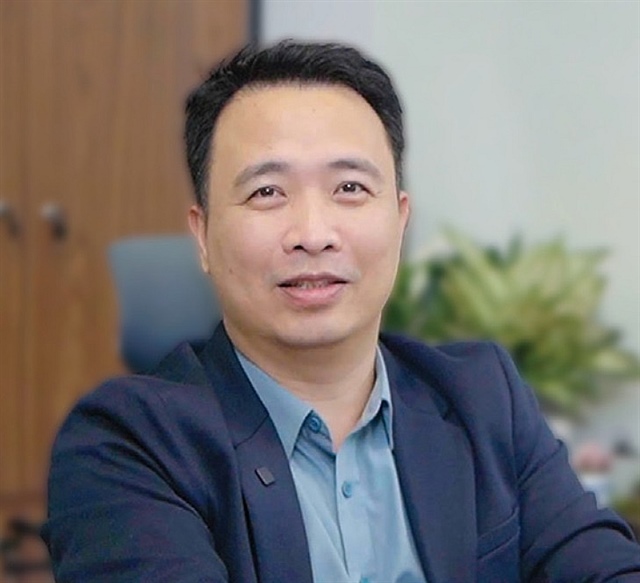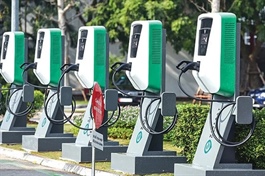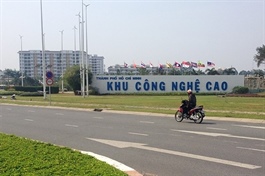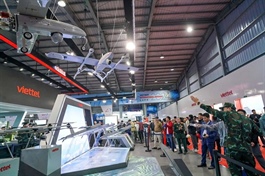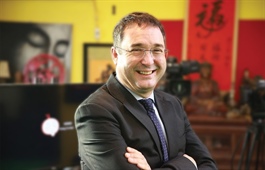High-tech absorption must be strengthened
High-tech absorption must be strengthened
While technology enterprises in Vietnam are gearing up plans for the semiconductor industry and advanced technologies, they are struggling to find ways to increase Vietnamese contributions to the global value chain.
Truong Gia Binh, chairman of tech corporation FPT, is leading his company’s focus on AI, semiconductors, and digital and green transformation in alignment with the country’s development strategy and market demands.
“We plan for semiconductors because the future will be AI semiconductor chips. We will make small AI models that can be used for chips. It is an important industry for the country,” he said at last week’s National Forum on Vietnamese Digital Technology Enterprises in Hanoi.
FPT aims to train 10,000 semiconductor engineers by 2030, and 50,000 AI engineers to contribute to Vietnam’s vision of having basic capacity in all stages from research, design, production, packaging, and testing in the semiconductor industry by 2030.
The group is now investing heavily in infrastructure and has built two factories in Vietnam and Japan. In the next five years, it aims to build five AI factories globally, contributing to making Vietnam one of the top countries in the region in providing AI computing infrastructure.
Other major businesses driving the sci-tech industry are also pushing ahead. Tao Duc Thang, chairman and general director of Viettel, identifies its mission as the main force in developing the semiconductor industry, looking towards enhancing Vietnam’s position in the global tech value chain.
Viettel has already designed the 5G DFE chip, the most complex chip in Southeast Asia to date, creating the premise for its team to enter the semiconductor industry playground.
“To enable technology enterprises in Vietnam to contribute to development, the country needs to issue guidelines for forming venture capital funds and evaluation mechanisms to encourage businesses to invest in new technologies, to form a strategic industrial development investment fund, and developing policies to prioritise domestically made products,” Thang said.
Nguyen Manh Cuong, director of innovation and technology development at Sovico, said that the company was cooperating closely with large companies and universities with semiconductor training programmes.
“Sovico has two universities, but it is not enough. We hope that schools and universities will cooperate with each other to develop the industry,” he said. “We do training in parallel with design and production, and we will soon open a semiconductor factory in Vietnam.”
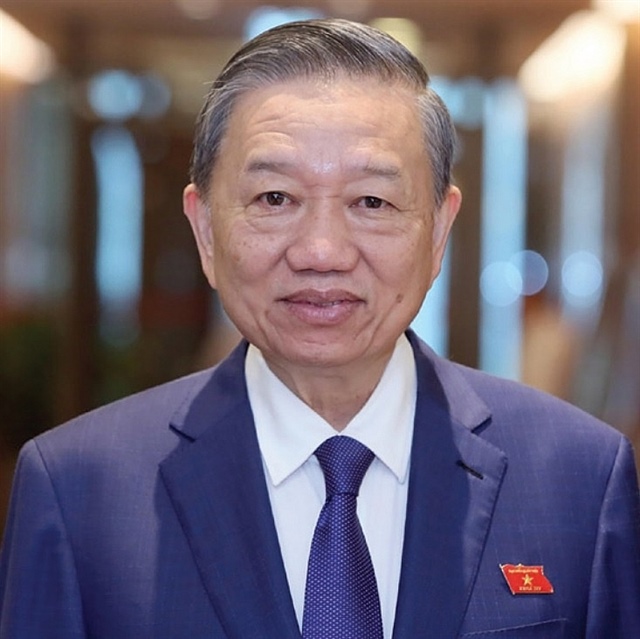
More schools and universities need to cooperate to help the digital transition develop strongly, |
Vietnam’s digital technology sector revenues reached $152 billion in 2024, an increase of 35.7 per cent from five years ago. Moreover, the digital tech startup ecosystem is growing strongly, with nearly 74,000 businesses. By the end of 2023, nearly 1,900 digital technology reached the international market, with revenue of $11.5 billion, an increase of 53 per cent from 2022.
Experts, however, pointed out some weaknesses of Vietnamese tech firms that still exist. One is research and development capacity, which is still heavily dependent on foreign resources, limiting Vietnam’s ability to be technologically autonomous.
“The ability to engage high-tech talent is not strong enough, leading to a shortage of quality human resources, directly affecting the innovation capacity of businesses,” lawyer Le Net added. “The technological level of Vietnamese enterprises is generally low, participating only at a very modest level in the global supply chain when they mostly do outsourcing.”
The contribution of foreign-invested enterprises (FIEs) to the advancement of domestic scientific progress is low; over 80 per cent of FIEs use medium-level technology; 14 per cent employ outdated technology, and about 5 per cent utilise high technology, Net added.
There are some lessons for a country to make success in this path that Vietnam can learn from. Specifically, South Korea’s three-pronged strategy of investment, capital injection, and innovation.
Dohyun Kang, South Korea’s Deputy Minister of Science and ICT, said, “The key to success is removing barriers, encouraging market liberalisation, enhancing fair competition, investing early in IT and communications infrastructure, and expanding investment in research and development.”
He added that South Korea has been preparing for the AI era through continuous plans. For example, in 2022, it proposed a master plan for digital human resource training. A few months later, it announced the South Korea Digital Strategy and, the following year, it passed the Digital Rights Act and implemented a plan to bring AI into daily life.
“Humanity is in the age of AI and this is the technology that drives the fastest and most widespread innovation in history. For example, for South Korea, the country estimates that the impact of AI on the annual economy will exceed $200 billion from now until 2026. AI also creates certain challenges and risks such as cyberattacks, fake information, personal information disclosure, and others,” Kang said.
|
To Lam, party General Secretary
I would like to receive reports on how much Vietnamese intelligence and digital technology contribute to the products of the digital tech industry; and how much they contribute to making those products smarter, more aesthetic, and more accepted by consumers. I suggest some key tasks for our digital technology industry and businesses going forward. Firstly, we must strive to be self-reliant and self-sufficient in technology and develop strategic and core technologies, which are the foundation for building an independent and self-reliant economy. We must continue to invest in developing digital infrastructure and also should entice high-tech experts. It is also critical to build a sustainable digital technology ecosystem, develop a digital economy and digital society, and improve global competitiveness and capacity. This is the right time for Vietnamese digital technology enterprises to unite to build a sustainable future for the country’s industry. This is not only a noble mission, but an opportunity for enterprises to assert themselves, bringing Vietnamese-made products and services to the wider world. Vu Quang Truong, manager ITS Products, Elcom
We have had a journey of several decades of research and development in intelligent transport products, contributing to solving specific local transport issues and to the development of a smart transport system in the country. Established in 1995 and now with a presence in 25 cities and provinces, we are in the top three developers of intelligent transport solutions in Vietnam. We are providing our products to urban areas, expressways, and are expecting to expand our operations when more component projects of the North-South Expressway are put into operation. In 2025 and beyond, we aim to become the number-one developer of smart transport solutions in Vietnam. We will focus on investing in researching cutting-edge technologies for transport, especially AI technology, to develop AI-related products for the system. We have plans to expand in the international markets, especially in the neighbouring countries like Laos and Cambodia, and are also looking for opportunities in Vietnam-Laos expressway projects. Also, we expect that the government will continue to create refinements for local technology companies to develop new specific products and solutions for Vietnamese. Dr. Duong Ngoc Cuong, CEO, GeneStory
We have made big strides in Vietnam’s gene industry with the launch of noteworthy genetic decoding services and products. In the upcoming time, we will continue to invest in the research and development into new products and techniques, while learning experience and advanced technologies from other countries to develop specific products and services for the Vietnamese genome. Especially, we will introduce a DNA chip in 2025 to better meet local healthcare demands. New resolutions on science and technology will help untie resources for sci-tech development, enabling Vietnam to increase its position in the international arena. For us, it is so important. We have been working with leading technology groups in the world on genetic technology transfer, and so the resolution will create stronger conditions for us to move faster and better and obtain more fruitful results. We are also planning to bring our products and services abroad and expect to make it happen in the next 3-5 years. |


